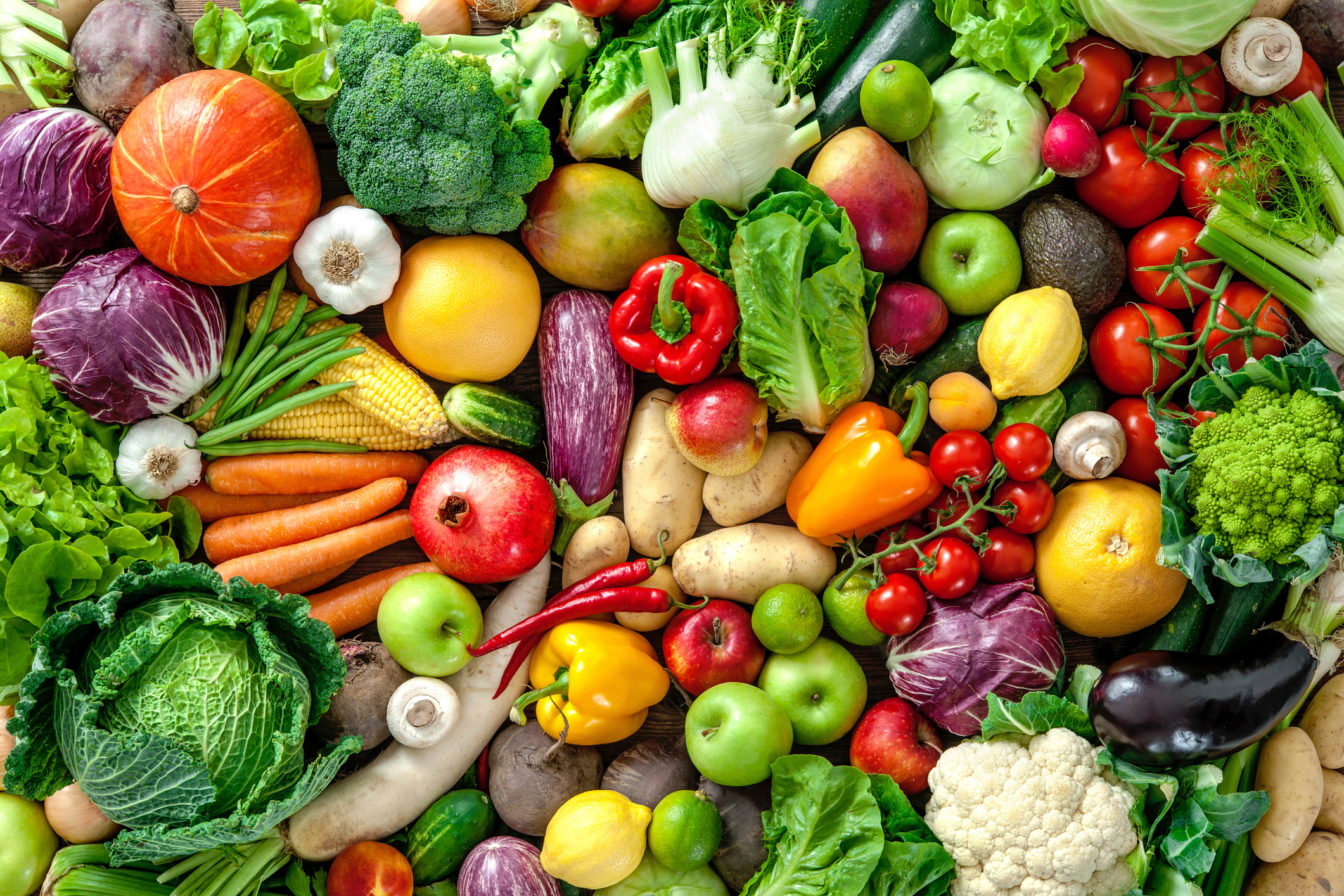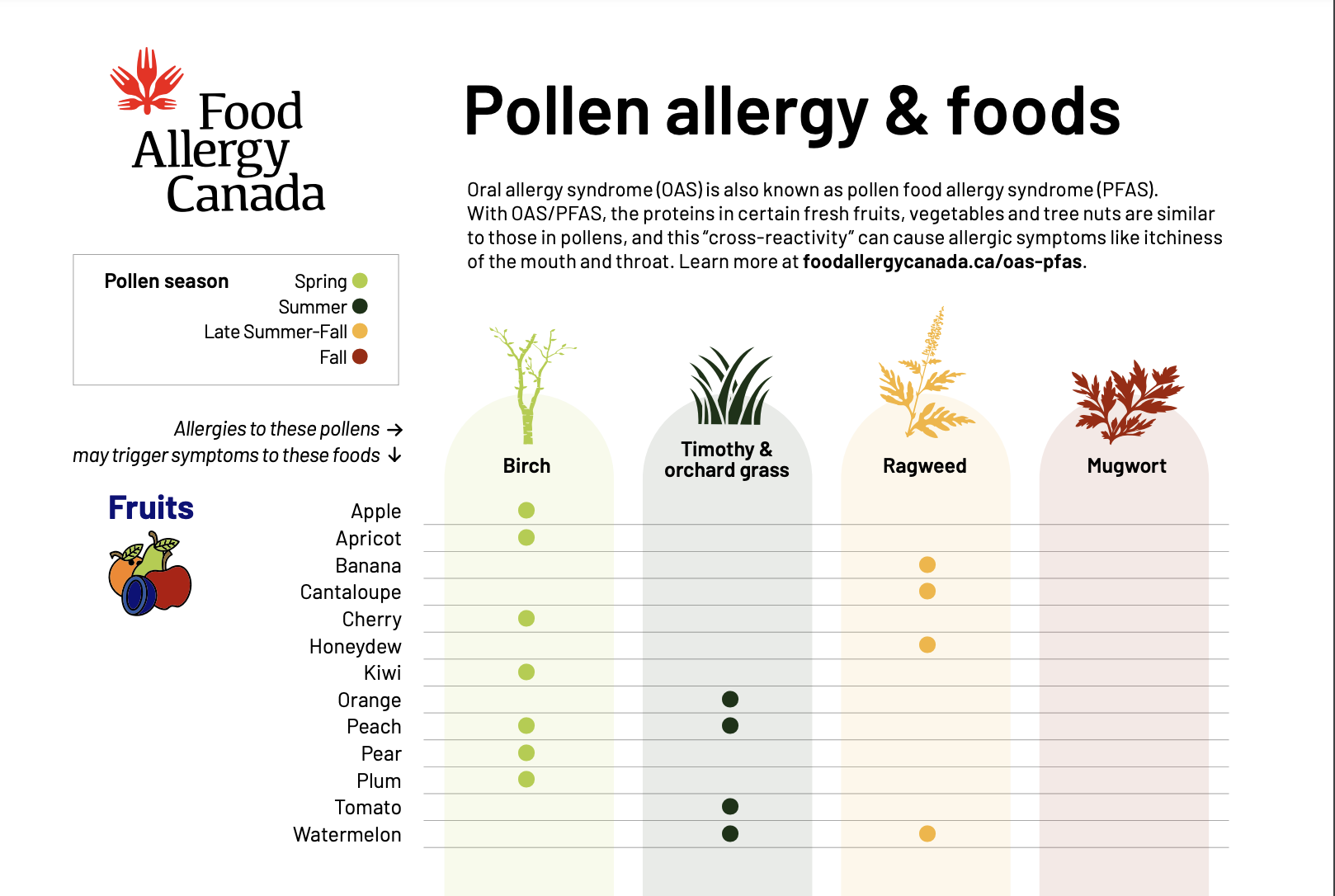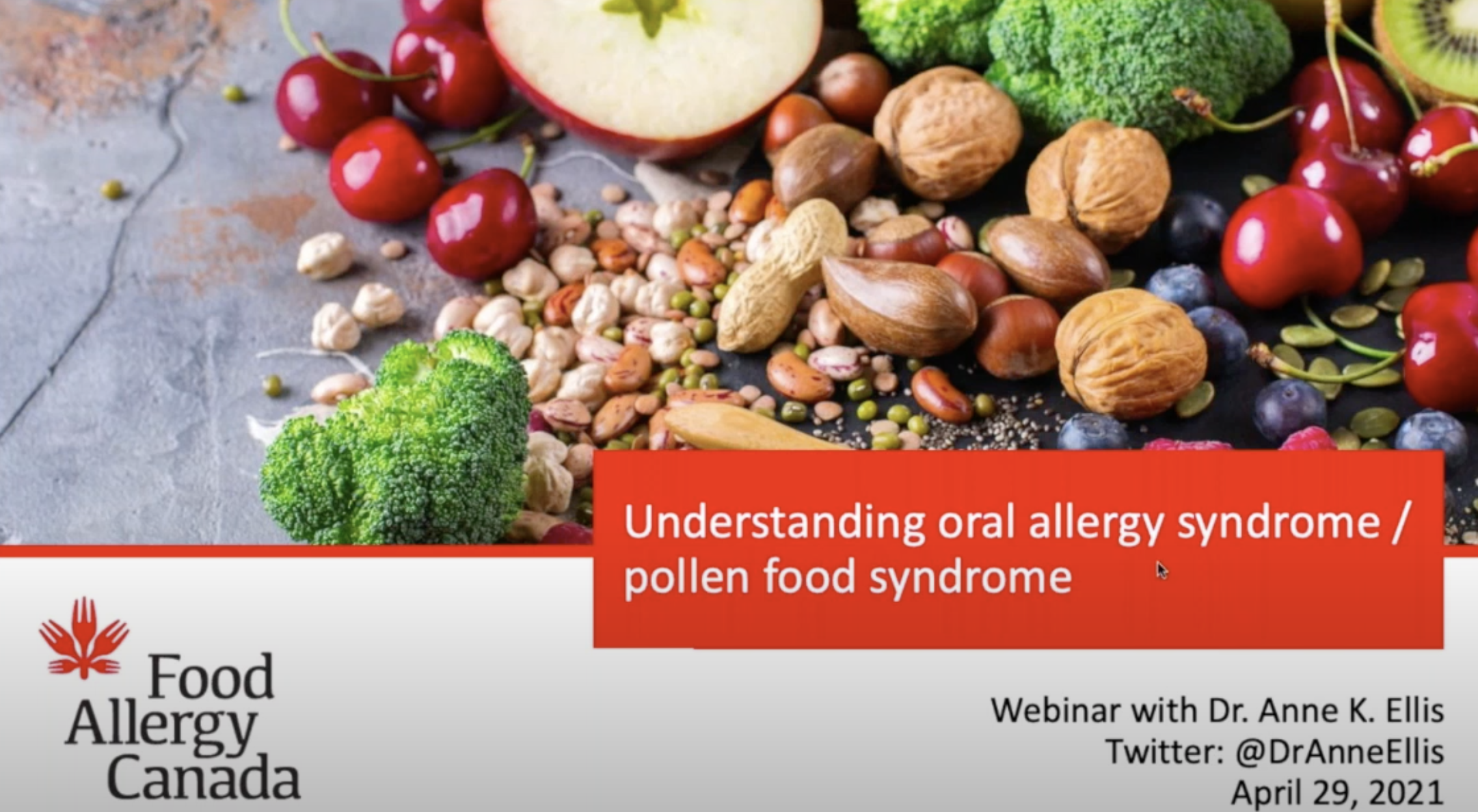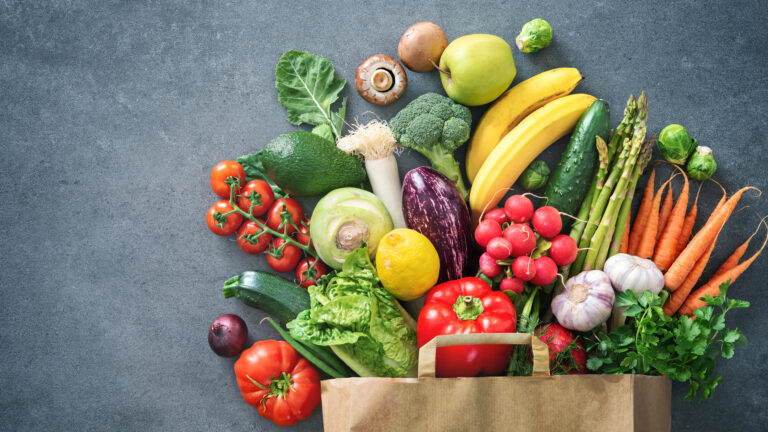Ask the allergist is a regular feature in our newsletters where Canadian allergists answer your questions!
Please note: The allergists featured in this series answer questions on general topics, please talk to your doctor if you have questions about your own health or the health of your child.
This month Dr. Julia Upton answers questions on oral allergy syndrome (OAS) and pollen food allergy syndrome (PFAS).
Do OAS/PFAS symptoms happen all year long or only during pollen season?
The symptoms of OAS/PFAS can happen all year long.

Can OAS/PFAS affect both kids and adults?
Yes, although it is uncommon in very young children. Usually, OAS/PFAS develops later in childhood and during adolescence.
Can OAS/PFAS be prevented?
OAS/PFAS is related to pollen allergy, especially birch tree, grass and ragweed.
Preventing pollen allergy would be expected to prevent OAS/PFAS; prevention of pollen allergy is an ongoing field of study.
How is OAS/PFAS treated?
Some foods, such as fruits and vegetables, can cause symptoms when they are raw. However, the protein changes when they are cooked; the cooked food is no longer as similar to pollen and causes no symptoms when eaten. Therefore, the management is to eat them in the cooked form and avoid them in raw forms.
Other foods, such as melons, are unusual to eat in the cooked form and are usually avoided if these foods give symptoms.

If a person has symptoms to some foods which are not substantially changed by cooking, such as peanuts and tree nuts, or has symptoms to cooked fruits and vegetables, avoidance of the foods and carrying an epinephrine auto-injector may be advised.
There may be a role for treating pollen allergy with immunotherapy (allergy shots) to try to reduce the symptoms of OAS/PFAS.
Many foods can cause OAS/PFAS. There are lists, like this one, linking different pollens to certain foods which can help to identify foods known to cause symptoms. These lists provide examples of various fruits, vegetables, legumes, and nuts. It is not likely for someone to react to every food on such lists and therefore avoiding all the foods noted is not needed.
Learn more:

Dr. Julia Upton is on staff at the Hospital for Sick Children in the Immunology and Allergy Department; and an Associate Professor in the Department of Paediatrics at the University of Toronto. She is the past Section Chair of the Anaphylaxis and Food Allergy Section of the Canadian Society of Allergy and Clinical Immunology. Dr. Upton is also a member of our Healthcare Advisory Board.
Please note: Dr. Upton is answering as an individual allergist and her answers do not constitute an official position of her affiliated organizations. Her responses are for informational purposes only and do not constitute specific medical advice, recommendations, diagnosis, or treatment. Please talk to your doctor about any concerns or questions you may have regarding your own health or the health of your child.
Do you have a food allergy-related question you’d like to ask an allergist in the months to come? If so, send it along to us at info@foodallergycanada.ca.
Tags: Oral Allergy Syndrome, Pollen Food Syndrome



